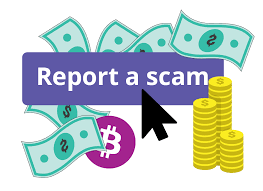Preventing Scams in Singapore: A Comprehensive Guide
Scams have become increasingly sophisticated in Singapore, with residents losing over $1.1 billion to scammers in 2024 alone. While seniors represent a smaller percentage of victims, they tend to lose larger amounts. Let me walk you through effective strategies to protect yourself and your loved ones from scams in Singapore.
Understanding Common Scams in Singapore
Before we discuss prevention, it’s essential to recognize the most prevalent scams:
Government Official Impersonation Scams

Scammers pose as bank officers or police officials, claiming your accounts are linked to criminal activities. They pressure you to provide personal information or transfer money to “safety accounts” for supposed investigations. The case of Madam Margaret Yeo in the article is a classic example—she received a call from someone pretending to be a bank officer who then transferred her to a “police inspector” requesting her NRIC number.
Investment Scams
These involve fake investment opportunities promising unrealistically high returns with minimal risk. Scammers often add victims to social media groups where other “investors” (actually accomplices) appear to be profiting. Victims deposit increasingly large amounts but eventually discover they cannot withdraw any funds.
Phishing Scams
Scammers send messages with fake links that lead to counterfeit websites of banks or government agencies. When you enter your credentials on these sites, scammers capture your information and use it to access your accounts.

Five Essential Protection Strategies
1. Leverage Technology for Protection
Download the ScamShield app, which helps detect and block scam calls and messages. This official app developed by Singapore’s authorities is specifically designed to protect residents. Additionally, activate the function with your telecommunications provider to block international calls, which are often sources of scams. Adjust privacy settings on messaging platforms like WhatsApp and Telegram to restrict who can contact you.

2. Verify Before Taking Action
When someone claims to be from a bank or government agency, independently verify their identity. Call the organization’s official phone number (look it up yourself rather than using the number the caller provides), visit a bank branch in person, or contact the 24/7 ScamShield helpline at 1799. Remember that legitimate officials will never pressure you to transfer money immediately or share sensitive information over the phone.

3. Stay Informed About Evolving Scam Tactics
Scammers constantly update their methods. Visit the ScamShield website regularly or follow ScamShield Alert channels on WhatsApp and Telegram for the latest advisories. Share this information with family and friends, especially elderly relatives who might be less familiar with digital scams. Knowledge sharing creates community protection—just as Madam Margaret Yeo warned her friends after her near-miss with scammers.
4. Practice Safe Digital Banking Habits
Since early 2022, all banks in Singapore have removed clickable links in emails and SMS messages sent to retail customers. Legitimate bank communications will bear their official sender ID. Never click on links claiming to be from your bank—instead, open your banking app directly or type the official website address manually in your browser. When in doubt, contact your bank through official channels to verify any requests.
5. Utilize Banking Security Features
Modern banking apps in Singapore offer protective features that can save your savings:
- Money Lock: This feature allows you to safeguard a portion of your funds by temporarily restricting outgoing digital transactions. Madam Margaret Yeo learned about this at the UOB scam prevention talk and found it particularly valuable.
- Kill Switch: Should you suspect your account has been compromised, activate this function to immediately halt all account activities, preventing further losses.
Additional Protection Measures
Beyond these five strategies, consider implementing these practices:
- Educate Elderly Family Members: Take time to explain common scam tactics to older relatives. The UOB scam prevention talks demonstrate how effective education can be.
- Be Skeptical of Urgent Requests: Scammers often create a false sense of urgency. Take a moment to think critically about any request that demands immediate action.
- Make Police Reports Promptly: If you suspect you’ve been targeted, report the incident to the police immediately, as Madam Margaret Yeo did. This helps authorities track scam patterns and may prevent others from falling victim.
- Check Account Statements Regularly: Review your bank and credit card statements frequently to spot unauthorized transactions early.
- Consider Family Protection Plans: Some banks offer family protection features where trusted family members can be alerted about unusual transactions from seniors’ accounts.
By implementing these strategies and staying vigilant, you can significantly reduce your risk of falling victim to scams in Singapore. Remember that awareness and education are your strongest defences against increasingly  sophisticated scammers.
sophisticated scammers.











 sophisticated scammers.
sophisticated scammers.